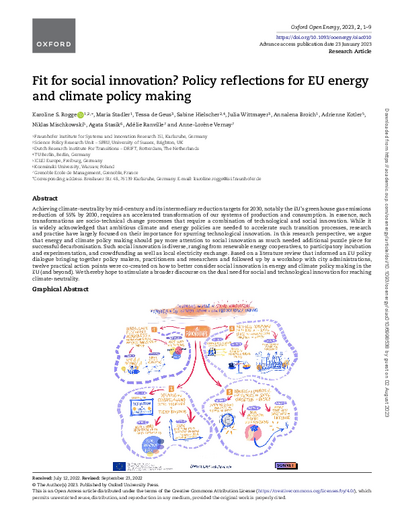Fit for social innovation? Policy reflections for EU energy and climate policy making
Achieving climate-neutrality by mid-century and its intermediary reduction targets for 2030, notably the EU’s greenhouse gas emissions reduction of 55% by 2030, requires an accelerated transformation of our systems of production and consumption. In essence, such transformations are socio-technical change processes that require a combination of technological and social innovation. While it is widely acknowledged that ambitious climate and energy policies are needed to accelerate such transition processes, research and practise have largely focused on their importance for spurring technological innovation. In this research perspective, we argue that energy and climate policy making should pay more attention to social innovation as much needed additional puzzle piece for successful decarbonisation.
Such social innovation is diverse, ranging from renewable energy cooperatives, to participatory incubation and experimentation, and crowdfunding as well as local electricity exchange. Based on a literature review that informed an EU policy dialogue bringing together policy makers, practitioners and researchers and followed up by a workshop with city administrations, twelve practical action points were co-created on how to better consider social innovation in energy and climate policy making in the EU (and beyond). We thereby hope to stimulate a broader discourse on the dual need for social and technological innovation for reaching climate-neutrality.



